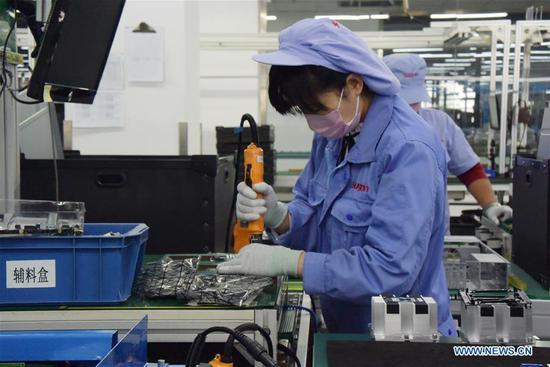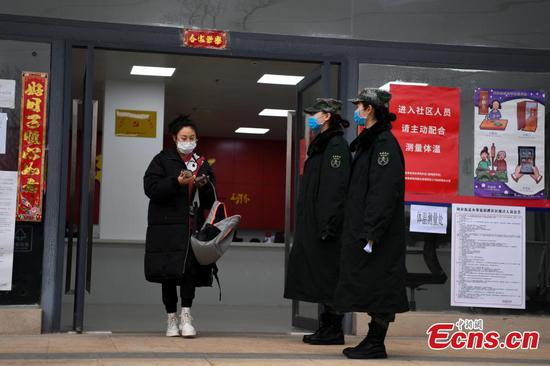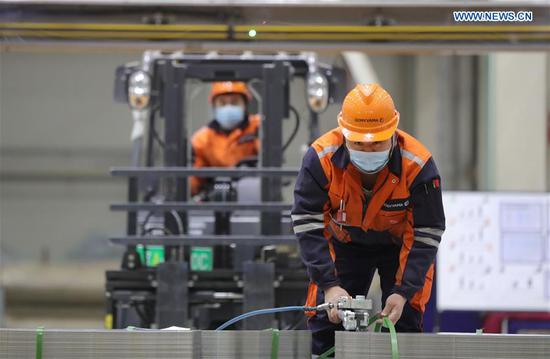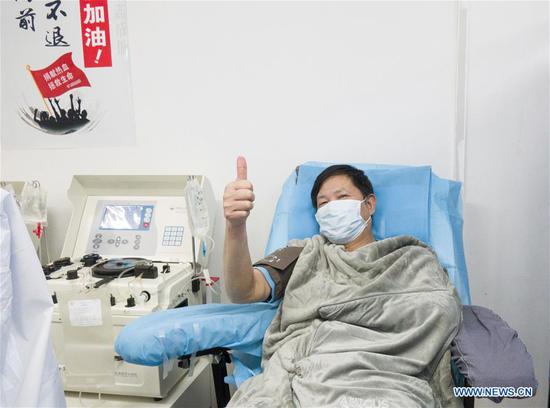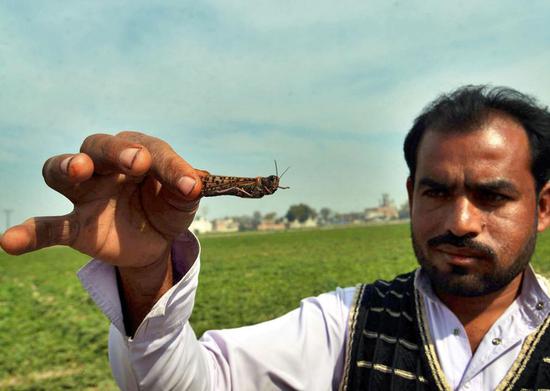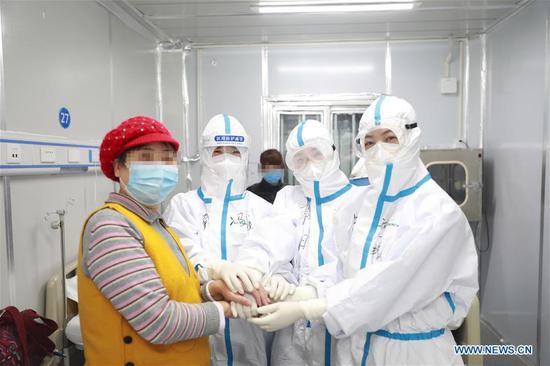
(LIANG LUWEN/FOR CHINA DAILY)
Legislators and experts are mulling ways of ensuring that the internet remains safe for juveniles.
The ongoing coronavirus outbreak saw many Chinese stay home during the Spring Festival holiday, rather than attend traditional events such as temple fairs.
Li Lin, a mother from Haicheng, Liaoning province, was no exception.
In addition to her concerns about the spread of the virus, the 42-year-old was troubled by another issue: Her 14-year-old son spent hours every day playing online games on his mother's smartphone.
"He has little time to spend online during term time, because of homework. But during the New Year holiday, he didn't need to go to school, so he had nothing to do after finishing his daily homework. Instead, his eyes didn't leave my phone," Li said.
The primary school teacher said she has two major concerns about adolescents, such as her son, who spend so long online.
"I don't want them to be victims of harmful content, especially pornography, or for them to hurt others or cause trouble through unregulated behavior in cyberspace," she said.
A report published in August by the China Internet Network Information Center showed that the number of netizens in China had reached 854 million by June, with 847 million using smartphones to surf the internet.
About 17 percent of respondents were ages 10 to 19, while nearly 25 percent were 20 to 29, the report said.
Moreover, it stated that the average time netizens spent online had climbed to 27.9 hours a week, from 18.7 hours in 2009, while the most popular smartphone apps were those related to instant-messaging services and videos.
In the past 12 months, government departments have amended laws and introduced new regulations to protect minors-people younger than 18-in cyberspace.
For example, in October, a draft revision to the Law on the Protection of Minors was submitted to a bimonthly session of the Standing Committee of the National People's Congress, the country's top legislature, for its first review.
For the first time, the draft highlighted the significance of cyberspace protection for children, and demanded that internet businesses must shoulder more responsibility to limit the amount of time juveniles can spend on the internet each day.
A month later, the National Press and Publication Administration issued a notice related to the regulation of online game providers.
The document specified the amount of time juveniles can spend playing games online per day, along with payment limits for minors using sites that offer such games. As such, it is regarded as a crucial technical move to prevent children from falling prey to online addiction.
While authorities were stepping up efforts to improve internet protection for children, the Beijing Internet Court was focused on the unregulated behavior of juveniles online. The court, which deals with internet-related disputes across the capital, called for greater involvement of policymakers, parents and internet companies to ensure children's safety online.
In December, Zhang Wen, the court's president, said the tribunal had dealt with a number of lawsuits brought after young people insulted or defamed other netizens or used aggressive or uncouth language to attack people in cyberspace.
"Minors' online behavior urgently needs regulation, because that is as essential as protection," she said.
"While enjoying a safe online environment, young people should also make their own efforts to maintain order in that environment."
Excessive use
Li, the mother from Liaoning, said: "During the recent holiday, my son often asked to borrow my phone. He spent more than four hours at a time playing online games, watching TV shows and videos and talking with friends via QQ, a popular instant-messaging tool designed by Tencent, a large technology company.
"I have not bought him a smartphone, as I don't want him to become addicted to the internet and influenced by harmful content online, but the things I was worried about are still happening."
According to the draft revision to the minors' protection law, to alleviate the problems of parents such as Li, government departments that deal with cyberspace-related issues have been ordered to make more efforts to guide juveniles and show them how to surf the internet safely and sensibly to safeguard their legitimate rights and security online.
While the draft urged the government to ban harmful content online, including that related to violence, pornography and drugs, it encouraged and supported content, services and technologies that are beneficial to juveniles' development.
It also urged public places, such as schools, communities, libraries and cultural centers, to provide online services for juveniles free of charge and to install security software on computers to protect them.
Meanwhile, to ensure safer cyberspace, internet service providers and products, such as apps, should avoid offering content that may lead juveniles to become addicted to online activities.
The companies are also required to include various functions, including time management or consumption restrictions, in their online products and services to help parents and guardians stop children from spending too long online.
Wang Haogong, a lawyer in Shaanxi province, welcomed the draft, saying some research suggests that many juvenile offenders had viewed unhealthy content in online games or on websites before turning to crime.
In November, the National Press and Publication Administration issued a notice stipulating that online game providers must not offer services for users younger than 18 between 10 pm and 8 am, and their paid online services must not be open to netizens younger than 8.
It added that minors must not be permitted to access online games for more than three hours a day during holidays or festivals, while the duration must not exceed 90 minutes at other times.
"I'm pleased to see the draft and the notice, as they are a response to public concerns, especially that of juvenile addiction to or indulgence in the internet," said Yuan Ningning, an associate professor of law at the China University of Political Science and Law, who regards the documents as legal progress for the protection of children in cyberspace.
Civilized behavior
The draft also demanded that families and schools regulate young people's online behavior and show them how to surf the internet in a safe, civilized manner.
"Such a requirement is aimed at telling more young people that cyberspace has never been a lawless place," said Zhang, from the Beijing Internet Court, which released a report in December detailing lawsuits that have resulted from improper and illegal behavior in cyberspace by juveniles.
The report said 41,948 cases were filed from Jan 1 to Nov 30 last year, of which 28 percent were related to libel. Having researched the disputes, the court found that many defendants were university students or unemployed people ages 19 to 30.
"They were brought before our court because they supported their own idols (pop stars, actors, etc) by insulting other celebrities with ugly words or false claims," said Jiang Ying, the court's vice-president.
"This defamation by fans or followers of singers, actors or actresses often takes place on social media platforms, such as Sina Weibo and WeChat, the country's most popular instant-messaging tool," she said, adding that most lawsuits came after online "battles" between fans of different celebrities.
"Some followers regard such defamation as support for their own idols, which is neither sensible nor helpful to maintaining order in the online environment. People's affection for a pop star cannot be above the law."
Jiang said celebrities are public figures and as such they should accept comments about their performance, even though sharp words may make them unhappy. "But insulting others has never been allowed," she added.
The report noted that when the court heard such cases it was evident that some young people spent a lot of money and valuable study time supporting their idols or following stars by infringing on celebrities' privacy, or even disturbing public order.
In response, Zhang called on organizations and people from all walks of life, including government agencies, internet businesses and children's guardians, to strengthen efforts to clean up the internet. She also said young people should comment more sensibly when supporting their idols online.
Ouyang Jihua, a lawyer in Beijing, said greater regulation of young people's behavior online is both necessary and urgently needed.
"Some young people don't know what punishments they face for making improper comments in cyberspace, so they speak online at will," he said.
"Their lack of awareness also means education is still lacking with regard to legal knowledge."
He suggested that judges and prosecutors should use specific cases to teach children in primary and middle schools, and also called for online service providers to design new products, such as moot courts, to help young people accept and understand the law more easily.











